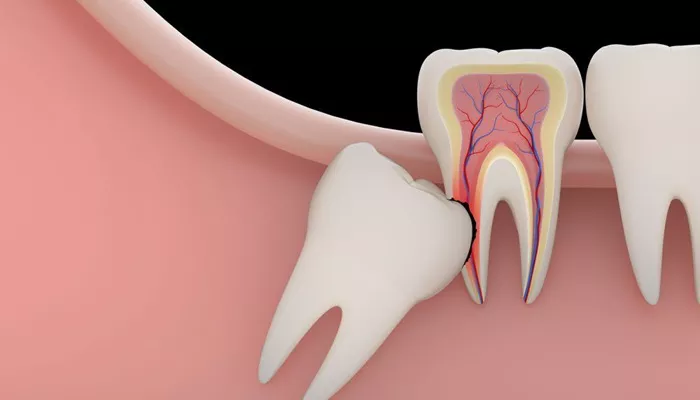Wisdom teeth, also known as third molars, are the last teeth to emerge in the mouth, typically appearing between the ages of 17 and 25. While some people have enough room in their jaws for these teeth to grow in properly, many individuals experience complications due to limited space or improper alignment. In such cases, wisdom teeth can become impacted or partially erupted, leading to various dental issues such as pain, swelling, and infection.
One of the most effective ways to manage wisdom teeth problems is by rinsing with a salt water solution. This simple yet powerful technique can provide relief, promote healing, and prevent further complications. In this article, we will explore the benefits of rinsing with salt water and provide a step-by-step guide on how to do it properly.
The Benefits of Rinsing with Salt Water
Rinsing with salt water is a time-honored remedy for various oral health issues, including wisdom teeth problems. Here are some of the key benefits of this practice:
Pain relief: The anti-inflammatory properties of salt water can help reduce pain and discomfort associated with wisdom teeth issues, such as swelling and inflammation.
Infection prevention: Salt water has natural antiseptic properties that can help kill bacteria and prevent infection in the affected area.
Wound healing: Rinsing with salt water can promote the healing of wounds or incisions related to wisdom teeth extraction or other dental procedures.
Fresh breath: Salt water can help neutralize odors and freshen breath, especially if you have an infection or food debris trapped around your wisdom teeth.
Cost-effective: Salt water is an inexpensive and readily available solution that can be used as an effective home remedy for wisdom teeth problems.
see also: When Will My Wisdom Teeth Swelling Go Down
How to Rinse with Salt Water
Rinsing with salt water is a simple and straightforward process that can be done at home. Here’s a step-by-step guide on how to do it properly:
Prepare the solution: Mix 1/2 teaspoon of salt in a glass of warm water (about 8 ounces). Stir the solution until the salt is fully dissolved.
Rinse: Take a sip of the salt water solution and swish it around your mouth, focusing on the area around your wisdom teeth. Gently swish the solution for about 30 seconds to 1 minute.
Spit: Spit out the salt water solution. Avoid swallowing it, as the salt content can be unpleasant if ingested.
Repeat: Repeat the rinsing process 2-3 times per day, or as directed by your dentist.
It’s important to note that while rinsing with salt water can provide relief and promote healing, it should not replace professional dental care. If you experience persistent pain, swelling, or other concerning symptoms, it’s crucial to consult with your dentist for proper diagnosis and treatment.
Tips for Effective Rinsing
To maximize the effectiveness of your salt water rinses, consider the following tips:
Use warm water: Warm water helps dissolve the salt more effectively and can provide a soothing sensation when rinsing.
Adjust the salt concentration: If the salt water solution feels too strong or irritating, you can reduce the amount of salt to 1/4 teaspoon per glass of water. Conversely, if you feel the solution is not strong enough, you can increase the salt content slightly.
Rinse after meals: Make it a habit to rinse with salt water after eating, as this can help remove food debris and prevent bacterial growth around your wisdom teeth.
Avoid rinsing immediately after dental work: If you’ve recently undergone a wisdom teeth extraction or other dental procedure, wait at least 24 hours before starting your salt water rinses to allow the surgical site to begin healing.
Combine with other treatments: While salt water rinses can provide relief on their own, they can be even more effective when combined with other treatments, such as over-the-counter pain medication or cold compresses applied to the affected area.
When to Seek Professional Help
While salt water rinses can be an effective home remedy for wisdom teeth problems, there are certain situations when it’s crucial to seek professional dental care:
Persistent pain or swelling: If your pain or swelling does not improve or worsens despite regular salt water rinses, it’s important to consult with your dentist.
Difficulty opening your mouth: If you experience limited jaw mobility or difficulty opening your mouth, it could be a sign of a more serious issue that requires professional attention.
Fever or chills: If you develop a fever or experience chills in conjunction with your wisdom teeth problems, it may indicate an infection that requires antibiotic treatment.
Difficulty swallowing or breathing: In rare cases, wisdom teeth problems can cause severe swelling that obstructs the airway. If you experience difficulty swallowing or breathing, seek immediate medical attention.
Ongoing dental issues: If you have a history of recurring wisdom teeth problems or other persistent dental issues, it’s essential to maintain regular check-ups with your dentist to prevent complications and ensure proper oral health.
Conclusion
Rinsing with salt water is a simple, cost-effective, and highly effective way to manage wisdom teeth problems at home. By reducing pain, preventing infection, and promoting healing, this technique can provide relief and support overall oral health. However, it’s crucial to remember that while salt water rinses can be a valuable tool, they should not replace professional dental care.

